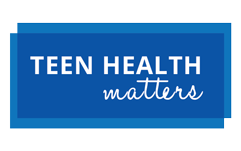STIs (sexually transmitted infections) are diseases that are contracted through sexual contact, whether it be vaginal sex, anal sex, or even skin-to-skin contact.1 The two most common STIs among teens are chlamydia and gonorrhea.2 Symptoms of STIs include pain, swelling, bumps or unusual discharge. STIs can also cause serious health problems, such as infertility and miscarriage. People between the ages of 15 and 24 have a higher chance of getting STIs than anyone else, partly because of lack of awareness.1 In Howard County, teen cases of chlamydia and gonorrhea have both risen dramatically since 2013.3 However, taking the appropriate measures for STI prevention will greatly lower your chances of getting an STI.
You should:
- Get tested. Many STIs have invisible symptoms, so the only way to know for sure that you have an STI is to get screened.1 You should get tested before you and your partner have sex and regularly afterward. Fortunately, Howard County offers free and confidential STI screening for HCPSS high school students! For more information, visit https://www.hcpss.org/health/sexual-health/sti-screenings/
- Communicate with your sexual partners. If you and your partner have both been tested and agree to only have sex with each other, your chances of getting STIs are much lower.1 Only have sexual contact with people if they agree to talk about how to have safe sex first.
- Use condoms. When used correctly, condoms are the only contraceptive method that can stop STIs.3 Fortunately (again), the Howard County Health Department offers free condoms! Visit your school nurse for 10 free condoms or call 410-313-7500 for more information.
- Avoid drugs and alcohol. As always, they can lead to bad decisions, such as unprotected sex.
STIs don’t just go away. If you find out that you or your partner have contracted an STI, you have to get treated by a healthcare provider. Don’t be afraid to talk to your doctor about potential STIs, as your doctor has probably dealt with many STI cases in the past and staying silent can cause serious damage to your body.
Our website also offers plenty of good resources about STI prevention. Visit https://teenhealthmatters.org/sex-ed/ to learn more!
-by Tyler Lin
